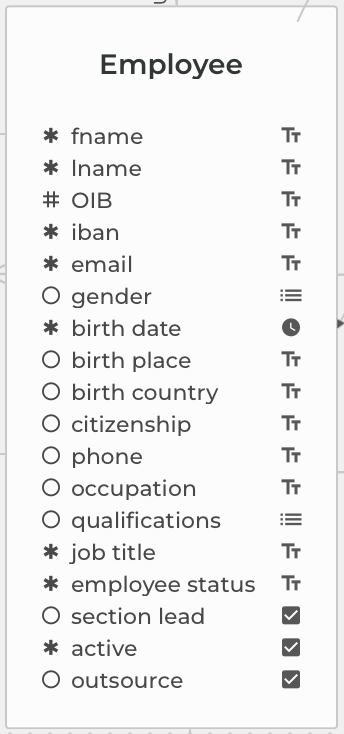Entities
Definition of https://dictionary.cambridge.org/dictionary/english/entity[entity] is
"a thing with distinct and independent existence". That said
entity in Datasets is a collection of attributes that uniquely define some thing. Attributes
are defined by attribute name, constraint and type. Attribute name is reference to storage
service under what name to store/search some value. Attribute constratint defines if
this attribute is optional, mandatory or unique.
Unique attribute creates constraint on dataset. Rule for this constraint is that in collection of all records for given entity only one record exists for combination of unique attribute values. Entities that have one or more unique attributes are called STRONG entities. Entities without unique attributes are WEAK entities. For WEAK entities it is possible store/search multiple entity records with same attribute values.
Beside constraint, and attribute name, attribute requires value type to be defined so that EYWA data storage service will know what type of data is it storing and which search options are available for given type.
euuid#
TIP:
Don't create Primary key fields, EYWA will generate special EUUID field for each entity that will be accessible as primary key. If composed primariy key is required it can be emulated by marking multiple fields with uniqueue constraint, and afterwards grouped in constraints tab for that entity

Supported data types#
- Integer
- Float
- String
- Boolean
- timestamp
- timeperiod
- uuid
- transit
- json
- currency
- enum
- encrypted
- hashed